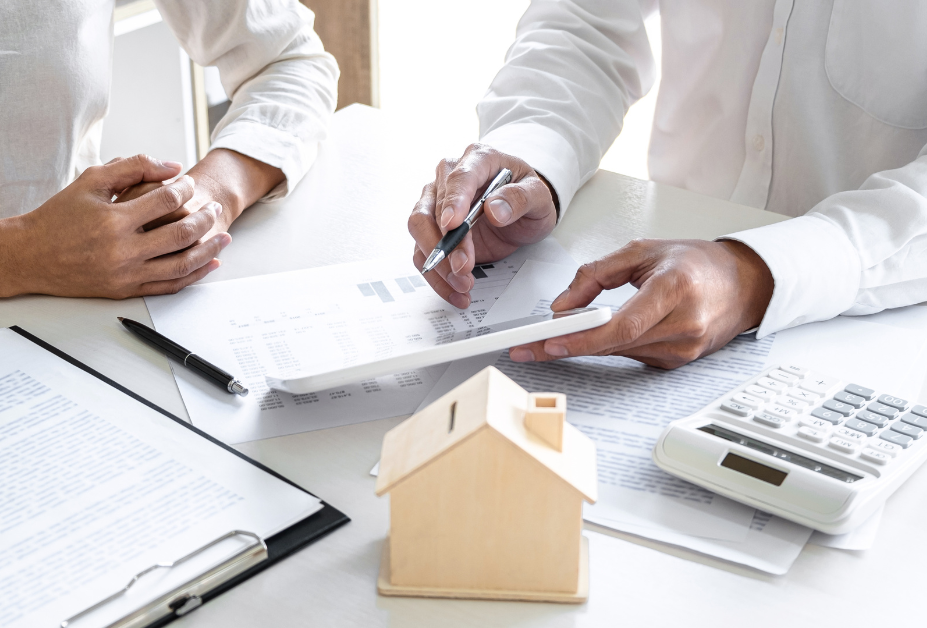Those of you who have had the pleasure of listening to my life story (it usually takes a beer or two) will know that I started out as a standard property investor. I bought property, rented it out, waited until I was ready, and bought another one.
Then one day I had a light bulb moment and realised I could achieve my financial goals quicker and easier through property development. By taking an active role, I could generate chunks of cash and revenue streams faster than if I sat back and waited for market changes.
Have you worked out the hilarious pun in the title yet? Ahem. Moving on... what are the secrets to creating a profitable portfolio through the strategy of property development?
 The fact is, building a successful property development portfolio requires careful planning, execution, and ongoing management. In other words, it takes some work.
The fact is, building a successful property development portfolio requires careful planning, execution, and ongoing management. In other words, it takes some work.
So let's start at the beginning. If you're in the process of trying to build a property portfolio, then you'll know that money is a huge factor. Yes, you can borrow a certain amount from a lender, but there's still a gap to be filled. And that's the bit that slows people down.
If you use all your available money to buy a property and rent it out, then guess what - you've got no money left. Now, given time and a favourable market your property will grow in value and eventually you will be able to refinance and pull out some capital. But it's a waiting game.
That's why I love property development. I might need to use all my money to buy a site still, but at the end of the project I can sell some or all of the lots or dwellings and cash my money back out again. And hopefully get more back than I started with.
Alternatively, I might end up with a property that has no mortgage on it, which will turbocharge the income I can earn from it.
If I've done a really good job, potentially I can have both!
Setting Goals
As a starting point, you need to define your objectives for your portfolio, whether it's long-term wealth accumulation, regular income, or a combination of both. Having clear goals will guide your development decisions.
Knowing your goals makes it easier to determine what type of development project you need to do next. It's really that simple! Money In - Money Out - Next Project. And as you grow, you can run multiple projects at the same time.
As part of this process, develop a detailed financial plan that includes budgeting for acquisitions, development costs, financing, and ongoing expenses. Consider working with financial advisors and accountants to optimize tax strategies and financing options.
Do the research and due diligence required to become an Area Expert. Conduct thorough research on potential properties, including market trends, location demographics, zoning regulations, and potential returns. Then perform due diligence to ensure the properties meet your portfolio goals.
Short-Term Debt vs Long-Term Debt
I've written plenty of articles around different types of lenders and how to maximise your lending through them. But on a more general basis, how you finance properties you develop to keep is an important piece of the puzzle.
 Personally, I love short-term debt. Even better, I love projects that leave me with one property completely debt free. Based on the holy grail of development returns, 20%, if you do a 6 lot development you should be able to sell 5 and keep one debt free. I've done this many, many times.
Personally, I love short-term debt. Even better, I love projects that leave me with one property completely debt free. Based on the holy grail of development returns, 20%, if you do a 6 lot development you should be able to sell 5 and keep one debt free. I've done this many, many times.
Okay, I get it - a 1 into 6 deal is a big step up for most newer developers, and I agree. I always teach my students to start with a small version of the types of deals they want to do down the track. That way they can build up their property developer muscles on smaller, quicker deals, with a lot less at stake if they make mistakes.
But even if you're developing smaller deals, you can still plan to come out the other end with a small mortgage on one of the developed sites. Then aim to pay it off as quickly as you can and you'll soon have a property that's generating a solid income for you.
I know some people like long-term debt for properties they plan to hold in their portfolio, but I've never been a fan. I like to be in control of my finances, and a long-term loan doesn't really help me in that way.
Think about it for a minute. When you have a mortgage, there are multiple factors that can really cause you grief, both in terms of the cost of the loan, as well as an unexpected change in your circumstances. For instance:
When you have no debt, you have control over all the financials for each property in your portfolio.
Evaluation and Adjustment
It's important to regularly evaluate the performance of your properties and adjust your portfolio strategy as needed. Consider selling underperforming assets or reinvesting profits into new opportunities to optimize your portfolio returns.
Remember, property development is a long-term endeavour that requires patience, perseverance, and a commitment to your development strategy. Stay focused on your goals and be prepared to weather market fluctuations and challenges along the way.
By following these tips and maintaining a disciplined approach to property development, I know you can build a successful portfolio that generates sustainable returns and helps you achieve your financial objectives. I know, because I've done it myself. Trust the Process!
Then one day I had a light bulb moment and realised I could achieve my financial goals quicker and easier through property development. By taking an active role, I could generate chunks of cash and revenue streams faster than if I sat back and waited for market changes.
Have you worked out the hilarious pun in the title yet? Ahem. Moving on... what are the secrets to creating a profitable portfolio through the strategy of property development?
So let's start at the beginning. If you're in the process of trying to build a property portfolio, then you'll know that money is a huge factor. Yes, you can borrow a certain amount from a lender, but there's still a gap to be filled. And that's the bit that slows people down.
If you use all your available money to buy a property and rent it out, then guess what - you've got no money left. Now, given time and a favourable market your property will grow in value and eventually you will be able to refinance and pull out some capital. But it's a waiting game.
That's why I love property development. I might need to use all my money to buy a site still, but at the end of the project I can sell some or all of the lots or dwellings and cash my money back out again. And hopefully get more back than I started with.
Alternatively, I might end up with a property that has no mortgage on it, which will turbocharge the income I can earn from it.
If I've done a really good job, potentially I can have both!
Setting Goals
As a starting point, you need to define your objectives for your portfolio, whether it's long-term wealth accumulation, regular income, or a combination of both. Having clear goals will guide your development decisions.
Knowing your goals makes it easier to determine what type of development project you need to do next. It's really that simple! Money In - Money Out - Next Project. And as you grow, you can run multiple projects at the same time.
As part of this process, develop a detailed financial plan that includes budgeting for acquisitions, development costs, financing, and ongoing expenses. Consider working with financial advisors and accountants to optimize tax strategies and financing options.
Do the research and due diligence required to become an Area Expert. Conduct thorough research on potential properties, including market trends, location demographics, zoning regulations, and potential returns. Then perform due diligence to ensure the properties meet your portfolio goals.
Short-Term Debt vs Long-Term Debt
I've written plenty of articles around different types of lenders and how to maximise your lending through them. But on a more general basis, how you finance properties you develop to keep is an important piece of the puzzle.
Okay, I get it - a 1 into 6 deal is a big step up for most newer developers, and I agree. I always teach my students to start with a small version of the types of deals they want to do down the track. That way they can build up their property developer muscles on smaller, quicker deals, with a lot less at stake if they make mistakes.
But even if you're developing smaller deals, you can still plan to come out the other end with a small mortgage on one of the developed sites. Then aim to pay it off as quickly as you can and you'll soon have a property that's generating a solid income for you.
I know some people like long-term debt for properties they plan to hold in their portfolio, but I've never been a fan. I like to be in control of my finances, and a long-term loan doesn't really help me in that way.
Think about it for a minute. When you have a mortgage, there are multiple factors that can really cause you grief, both in terms of the cost of the loan, as well as an unexpected change in your circumstances. For instance:
- Inflation
- Tenant leaves
- Interest rates rise
- You lose your job
When you have no debt, you have control over all the financials for each property in your portfolio.
Evaluation and Adjustment
It's important to regularly evaluate the performance of your properties and adjust your portfolio strategy as needed. Consider selling underperforming assets or reinvesting profits into new opportunities to optimize your portfolio returns.
Remember, property development is a long-term endeavour that requires patience, perseverance, and a commitment to your development strategy. Stay focused on your goals and be prepared to weather market fluctuations and challenges along the way.
By following these tips and maintaining a disciplined approach to property development, I know you can build a successful portfolio that generates sustainable returns and helps you achieve your financial objectives. I know, because I've done it myself. Trust the Process!
